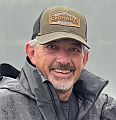LIVING WATER SMART IN BRITISH COLUMBIA: “The last thing we want to do is overwhelm the public with science. Developing accessible educational material is key,” stated Dr. John Millson of the Salt Spring Island Water Preservation initiative

“ Water quantity is such a big deal. Why is that? Well, islands only have rainwater for water supply. The project has three components: science, education, and planning. This is my motivation for what I am doing. One, let’s develop the science, two, share that with the public. That reaches into the education side of it, and three, the information needs to be used to inform planning! My experience is that you do not make planning decisions which influence people or business, and involve spending, without having sufficient information,: stated Dr. John Millson.
LIVING WATER SMART IN BRITISH COLUMBIA: Cowichan Valley’s Kate Miller is the inaugural recipient of the Watershed Moments Team Award which recognizes extraordinary contributions and accomplishments to embed ecosystem values within municipal planning, processes and projects

The Watershed Moments Award honours the legacy of the late Rob Lawrance, former Environmental Planner with the City of Nanaimo on Vancouver Island. “Kate Miller is a worthy inaugural recipient of this award. Kate connects the dots between community and regional government water stewardship collaboration. Kate also leads in inter-regional collaboration on water stewardship initiatives through her key participation on the Watershed Moments Team. Kate and Rob worked together on water stewardship efforts,” stated Chair Paul Chapman during award presentation.
LIVING WATER SMART IN BRITISH COLUMBIA: “Our watersheds have been stewarded for thousands of years by First Nations. We can continue to steward them for thousands of years into the future,” stated Keith Lawrence, Cowichan Valley Regional District (January 2023)

“When I first joined CVRD, watershed governance was top of mind for some folks. We were working on a program to collaborate with various organizations to look at watershed and groundwater governance. We were trying to understand the problems with the current governance framework which was informal and identify a framework that could work going forward. The Cowichan watershed is a great example of community involvement. Given the number of organizations, one needs to create a mind map to understand it, because the stewardship network is an ecosystem in and of itself.” stated Keith Lawrence.
LIVING WATER SMART IN BRITISH COLUMBIA: “Getting involved in a Water Sustainability Plan is one thing. Leading it is another. Who is going to take charge, who is going to step up and really lead that process,” stated Brian Carruthers, former Chief Administrative Officer with the Cowichan Valley Regional District (January 2023)

“When I think about the experience in the Cowichan, in many ways the region is still in the theoretical stage in terms of weaving Indigenous knowledge and Western science,” stated Brian Carruthers. “We created the framework for that to happen, but I cannot say that it truly has happened. The foundation for interweaving in the Cowichan region is really with the Cowichan Tribes. Everything the Cowichan Valley Regional District has done has been shoulder to shoulder with them. The framework is in place and the Drinking Water and Watershed Protection service exists.”
BLUE ECOLOGY IS THE PATHWAY TO REACH WATER RECONCILIATION: “What Blue Ecology offers local government is a foundation, and starting point, that has both Indigenous and non-Indigenous buy-in. I believe this will alone remove some of the fear,” says Michael Blackstock, independent Indigenous scholar and creator of the Blue Ecology methodology

“I have been reflecting on the recent UN climate change conference in Egypt. It seems that the wind is coming out of the sails. It seems like climate adaptation is too big a hill for nation level governments to climb and solve. My hope lies in local government because local people understand their local area. And at the local scale, we are able to self-organize better on specific execution of executable tasks. I have lived in many communities throughout BC and have learned that those towns each have their own culture. So, local knowledge is important, whether it is Indigenous or non-Indigenous,” stated Michael Blackstock.
LIVING WATER SMART IN BRITISH COLUMBIA: “The growing cost of neglect, combined with the urgency of the flood liability issue in particular, is the driver for linking municipal infrastructure asset management and stream health as cause-and-effect,” stated Kim Stephens, Executive Director, Partnership for Water Sustainability in BC (January 2023)

“My over-arching message to those who were elected to municipal councils and regional boards in October 2022 is succinct: Get the water part right in a changing climate, and you will be amazed how other parts of the community resiliency puzzle then fall into place,” stated Kim Stephens. “Land use alters the landscape. That is obvious, right. But there is an elephant in the room. It is the unfunded liability due to neglect of the drainage service. The cost of neglect grows over time. The consequence of neglect is an accumulating financial liability to fund creek channel stabilization and stream corridor revegetation in urban and rural settings.”
LIVING WATER SMART IN BRITISH COLUMBIA: “An airplane analogy is one way to describe the relationship between council and staff. Think of one wing as political and the other as administration. If either wing is not functioning properly, the plane will crash,” stated Peter Steblin, Coquitlam City Manager

As each new generation inherits the world, vital knowledge is forgotten. Generational amnesia has profound effects on the way that we see the world. The challenge is to overcome generational amnesia so that communities learn from past experience, apply this knowledge, and achieve better policy and financial outcomes. Peter Steblin provides a perspective on how elected councils and local government staff can function effectively to arrive at affordable and effective solutions to challenges. He says, “Staff gives good advice and council makes the decision. The operative phrase is a respect-based relationship.”
LIVING WATER SMART IN BRITISH COLUMBIA: “Dr. Jane Wei-Skillern always acts as a great sounding board about the concepts underpinning our network approach in general and our Ambassadors Program in particular,” stated Derek Richmond, Partnership for Water Sustainability (November 2022)

“The biggest takeaway from our conversation with Dr. Jane Wei-Skillern concerns the ‘what, how and who’ as the current leadership of the Partnership looks ahead to pass the baton.. Using the Partnership’s Ambassadors Program as the example of WHAT; – this was the breakthrough to articulate our need for succession planning and sustainability of the network. The WHO now becomes obvious because it is the ambassadors themselves. The HOW is now clear too, by looking back at what we were successful with in the past,” stated Derek Richmond.
LIVING WATER SMART IN BRITISH COLUMBIA: “For decades we have trained our elected officials how to think and what to do with a plan. But now, with an Asset Management Plan for Sustainable Service Delivery, we want them to do something completely different. No wonder they are confused,” stated Wally Wells of Asset Management BC (November 2022)

“We have managed assets for decades and understand what that is and what we are doing. Suddenly we took two very simple words, reversed them, and went from managing assets to asset management. The result? We confused everyone. Section 7 of the Community Charter defines the roles and responsibilities of local government in terms of ‘care of infrastructure and services’. In other words, Sustainable Service Delivery. This goes to the heart of affordable and sustainable re-investment in municipal infrastructure assets to meet a level-of-service desired by the community,” stated Wally Wells.
LIVING WATER SMART IN BRITISH COLUMBIA: “Well-maintained municipal infrastructure assets are worthless IF THEY DO NOT provide a service. Also, for any asset management approach to be successful, it must not focus on the infrastructure asset by itself,” stated Glen Brown, founding Chair of Asset Management BC

In British Columbia, local governments must show how they are progressing along the Asset Management for Sustainable Service Delivery continuum. “Money – it should be about how to get the most value out of every dollar spent on municipal infrastructure. Too often, thinking stops after the capital investment is made. Yet everyone needs to be thinking in terms of life-cycle costs, including future recapitalization of the investment,” stated Glen Brown. Section 7 of the Community Charter defines the roles and responsibilities of local government in terms of “care of infrastructure and services”.

